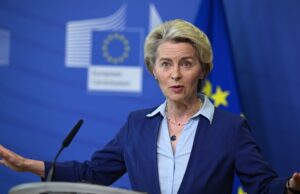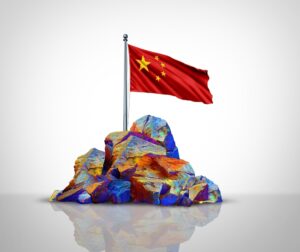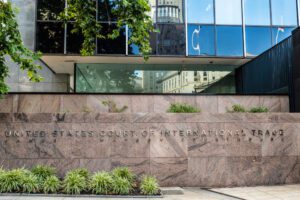WITA’s Friday Exchange Podcast:
Former Trade Negotiators Discuss This Week’s Tariff and Trade Developments
Former trade negotiators discuss this week’s tariff and trade developments with the EU, Brazil, Canada and Mexico
No one understands the dynamics with key U.S. trading partners better than the people who led these kind of difficult trade negotiations for the United States. Panelists will update our subscribers on the tariff and trade announcements, what remains undone; and what are expected next steps in these negotiations.
Featured Speakers:
Introduction: Kenneth Levinson, CEO, Washington International Trade Association
Everett Eissenstat, Partner, Public Policy Practice Group, Squire Patton Boggs; former Deputy Assistant to the President for International Economic Affairs and Deputy Director, National Economic Council; former Assistant U.S. Trade Representative for the Americas, Office of the U.S. Trade Representative; former Chief International Trade Counsel, United States Senate
Kellie Meiman, Senior Counselor, McLarty Associates; former Director for Brazil and the Southern Cone, Office of the U.S. Trade Representative
Daniel Mullaney, Non-Resident Senior Fellow, Atlantic Council; former Assistant U.S. Trade Representative for Europe and the Middle East, Office of the U.S. Trade Representative
Moderator: Wendy Cutler, Senior Vice President, Asia Society Policy Institute; former Acting Deputy U.S. Trade Representative, Office of the U.S. Trade Representative
Watch the Video on YouTube | Listen on Spotify or Apple Podcasts
07/17/2025 | WITA
The EU-CPTPP Plan Sends a Message to World Trade Order
At a 26 June dinner of heads of state and government of the European Union, EU Commission President Ursula Von der Leyen suggested linking the EU with 12-nation Comprehensive and Progressive Trans-Pacific Partnership (CPTPP) to draw up new trade rules and iron out trade conflicts that may arise.
“We can think about this as a beginning of redesigning the WTO,” Von der Leyen said, referring to the World Trade Organization. An EU-CPTPP alignment, she said, would “show to the world that free trade with a large number of countries is possible on a rules-based foundation.”
Von der Leyen’s support for closer links with the CPTPP is not new. In April, she had phone calls with both Singapore Prime Minister Lawrence Wong and New Zealand Prime Minister Christopher Luxon in which the leaders discussed broader efforts at economic cooperation. Both countries are members of the CPTPP and the EU has trade agreements – including digital trade agreements – with both.
But it touched off consternation at the WTO. Already beleaguered by the US retreat from the multilateral trade body, news of the comments coming out of Brussels set off alarm bells at the WTO’s headquarters in Geneva. Frantic calls to EU Commission officials requesting an explanation led EU Commission for Trade and Economic Security, Maroš Šefčovič, to issue a 27 June press statement highlighting a “very good” telephone call he made that day to WTO Director General Ngozi Okonjo-Iweala in which, he said, the two expressed a “shared ambition to preserve a rules-based trading system and to work together on ways to revitalize and strengthen it.”
But support at the highest levels of the EU for an EU-CPTPP collaboration would inevitably siphon off resources and energy devoted to reforming the WTO and further diminish prospects for any breakthrough toward that mission in Geneva.
07/15/2025 | Keith M. Rockwell | The Hinrich Foundation
Powers of Attraction
For at least the last decade, Americans (as well as Europeans and Japanese) have been wrestling with an inconvenient truth: while we may prefer neo-liberal economic policies in which the market, not states, determines the flow of economic activity and prices, we live in a world which is increasingly determined by state-directed industrial policies. Unfortunately, those policies are NOT our own and they are designed to put us at a disadvantage.
The PRC’s industrial policies are reshaping the global economic order and trade patterns. Beijing employs these policies to reduce its vulnerability to the rest of the world, while it makes the rest of the world more vulnerable to Beijing’s coercion (aka ‘dual circulation’).
The hope of American (as well as European and Japanese) policymakers had been that we could persuade China’s leaders to embrace our neo-liberal preferences. In the language of the Obama Administration, this was the “bind” portion of their “Engage, Bind, and Balance” policy towards the PRC. In essence, “bind” the PRC to our preferred international rules and norms. For someone like Robert Zoellick during the Bush Administration, this is what he meant when he called on Beijing to become a “responsible stakeholder.”
We should be honest with ourselves, the Chinese Communist Party rejects our vision of market-driven economic and trade policy, and they refuse to be bound by the rules and norms associated with that system… even as they gaslight us about upholding multilateralism and the World Trade Organization.
When the PRC was an economic midget, their refusal to play by these rules was an inconvenience but didn’t do much harm. Western leaders believed they had time to persuade the PRC to change its ways and make itself soluble to the rules-based international order. That isn’t the situation we face today. The PRC is now of such economic, industrial, and technological stature as to fundamentally alter global markets.
We all live in a global economic system that is determined by PRC industrial policy.
07/13/2025 | Matt Turpin | China Articles on Substack
Court of International Trade’s Flawed Ruling in Striking Down Trump’s Tariffs
For several months, the Trump administration has aggressively deployed the International Emergency Economic Powers Act of 1977 (IEEPA) to impose (and in some cases subsequently modify) significant tariffs on U.S. trading partners. IEEPA is a very broadly-worded statute empowering the president to “deal with any unusual and extraordinary threat, which has its source in whole or substantial part outside the United States, to the national security, foreign policy, or economy of the United States, if the president declares a national emergency with respect to such threat.” Often invoked by presidents in levying economic sanctions against foreign states and actors, IEEPA also empowers the president to “regulate … importation.” Notably, President Nixon’s 1971 tariffs under an identically worded provision of the Trading with the Enemy Act of 1917 (TWEA) was upheld by the U.S. Court of Appeals for the Federal Circuit’s predecessor.
On May 28, 2025 in V.O.S. Selections v. United States, the U.S. Court of International Trade (CIT), an Article III court, invalidated much of the Trump administration’s tariff program as exceeding the president’s authority under IEEPA. The CIT panel briefly mentioned that its analysis was informed by concerns over unbounded delegation to the president that might be addressed through the Supreme Court’s “major questions” doctrine (MQD). As discussed in our earlier piece, if congressional action is not forthcoming (as is likely the case), we recommend a serious brushback of the president’s aggressive, unpredictable tariff regime and encourage the application of constitutional non-delegation principles to the president’s authority under IEEPA. Delegation to the president under IEEPA is a serious problem because there are no real limits on the president’s declaration of an emergency under the National Emergencies Act of 1975 (NEA), once the Supreme Court overturned the “legislative veto” provided by the NEA as a check on presidential discretion.
While we understand the CIT panel’s concerns over IEEPA’s seemingly unlimited delegation to the president to set tariffs, we question the court’s reasoning in reaching its result. We also question a recent ruling of the District Court for the District of Columbia that IEEPA’s authorization of the president to “regulate” imports simply does not include tariffs. Both decisions reflect the limits of constitutional avoidance techniques when a direct frontal challenge to IEEPA on non-delegation grounds is warranted.
07/14/2025 | Samuel Estreicher & Andrew Babbitt | Just Security
WITA – We put the community in trade community.
Information about upcoming WITA and trade community events






